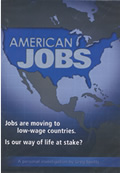Other Public Commentary
Articles:
Is The Public Being
Deceived By
'Family Friends'?
Radio Encounters
Of The Third
Kind
More
Public
Commentary
Articles:
THE SINKING OF LLOYD'S OF LONDON
By James Hall
March 9, 2005
NewsWithViews.com
From an inauspicious and informal gathering at Edward Lloyd�s London coffee house in 1688 to ringing the ship�s bell in a futuristic glass escalator marketplace, Lloyd�s of London has endured through feast and famine. From Tower Street to the Royal Exchange at Cornhill, on to 12 Leadenhall Street and finally to One Lime Street, Lloyd�s of London has been the world's leading insurance market, the second largest commercial insurer and sixth largest re-insurer.
The origin of insuring risk is a concept that is simple, yet masked in complexity. Lloyds has traditionally been identified with the shipping. As a trading nation English merchants sought to insure their vessels and cargo from the perils of a sea voyage. Wealthy individuals would each take a share of a risk, then signed their names one beneath the other, on the policy together with the amount they agreed to cover. For this reason they were known as 'underwriters'. Individual Lloyds insurer members have been know as �Names�.
Brokers, like in every field of enterprise, acted as agents to facilitate transactions and foster deals. Over time, a group of professionals, know as External Names evolved into managing the affairs of Names, especially those who viewed their role as a passive player. Syndicates formed that specialized in certain coverage, which attracted groups of Names to accept the risk of underwriting. External Names would negotiate premiums, structure agreements and accept or reject business brought to the floor by Brokers.
Types of business evolved into categories: Marine, Non-Marine, Motor and Aviation. Names for their percentage of premiums accepted the concept of unlimited liability. Thus coming into the lexicon - spread the risk - all Lloyd�s Names agreed by the articles of their association, that if any of them fail to meet obligations or goes bankrupt, each of the other members will be equally responsible for those debts, to the full extent of their own personal wealth.
Tolerating such risk is not for the faint of heart. However, the reward from the premiums on insurance policies, minus the payout for claims and the administration of business costs, had a very enticing benefit called �gearing�.
Gearing is one of those gems that make life worth living. Leverage is a key feature that heightens the potential for profit. During the later part of the last century, 3 to 1 and as high as nearly 4 to 1 times the amount of deposited funds that is provided for security, entitled underwriting of three to four times the amount of the deposit. This business model was the main motivator to assume the accompanied risks of unlimited liability.
Devises such as re-insurance, which is essentially laying off the final obligation for the price on indemnity against the amount of syndicate underwriting, help to reduce the peril of unsustainable cash calls. MAPA�s, basically a mutual funds approach to underwriting, offered to spread the risk among a full range of syndicates, at a lower exposure. The Central Fund is publicized as a general cash reserve and the PTF, Premium Trust Funds (a personal reserve) as a further guarantee. For the past several years, Lloyd�s has assessed its members 1% of their allocated overall premium limit. Lloyd�s can also make a proportionate call of $426 million upon the members� PTF�s without their consent.
Despite this centuries old financial formula, panic struck at the core of stability during the 1980�s and early 90�s, due to unwise risk/reward underwriting, sloppy business practices, poorly written contracts and huge legal settlements. With this general background, fast forward to the new era of corporate capital.
�The majority of Names who had been involved in costly litigation against Lloyd's accepted its proposed settlement offer and its Reconstruction and Renewal Plan, and Lloyd's began to move forward blessed by a new world of corporate capital investment. But what will the new Lloyd's look like in the coming years? Will corporate involvement in Lloyd's restore Lloyd's to its preeminent position as international insurance marketplace of the world? How will the remaining Names at Lloyd's fare, given the fact that they still face unlimited liability a la the old regime, while corporate capital enjoys limited liability?�
The handwriting was on the wall for any individual Name. As the price of reorganization, the very essence of gearing was stripped from the equation. Old members who endured the tough years still retained significant liabilities from syndicates that did not close and exposure to open ended legal actions that continue into the future. The promise of the Equitas bailout with corporate coffers recapitalization was really the crowding out of unwanted Names, now that their wealth was sucked dry. The errors and omissions certainly hit new heights with the steamrolling of the society for the benefit of the management and the detriment of traditional Names.
Toby Greenbury, partner in the London-based law firm D.J. Freeman, sums up the mindset that destroyed the venerable bastion of individual enterprise. Greenbury is adamant about the importance of corporate capital at present day Lloyd's. "A remarkable change has taken place at Lloyd's in just a few short years," he said in interviews at his London offices. "Prior to 1993, only individual investors were allowed to invest. But, with the heavy losses that came about because of the 1989-92 years of account, Lloyd's was desperately in need of capital. Individual investors, burned severely by those losses, were not anxious to put more money in. So Lloyd's turned to the corporate community." According to Greenbury, the shift to limited capital did the trick as far as the venture capitalists were concerned.
Christian Milton of AIG stated at a law symposium back in 1996: �We have no doubt that Lloyd's is evolving its capital structure with its decision to introduce corporate capital, which really started as part of its business plan back in 1993. Now, we just have to distinguish the Names from the corporate capital. We should expect to see the diminishing role of the Names, which we believe is going to happen more and more, with an ever increasing role for corporate capital. But we have to be careful with corporate capital. If we were to look at the press over the last couple of weeks, corporate capital according to recent Lloyd's numbers represents only about thirty percent of the total capital.�
Contrast this insurance industry stance with The American Names Association white page presented in March 2002.
�Prior to opening its doors to foreigners in 1970, Lloyd�s membership was limited to British citizens. Between 1970 and 1988, Lloyd�s membership grew from 6,000 U.K. citizens to a peak of 32,433 including over 3,400 Americans. Following accusations by many of the new members that they had been fraudulently induced to become members, over 22,500 withdrew. Under pressure to replace the lost capacity, in 1993 Lloyd�s opened its doors to limited liability corporate memberships. By 1997, 45% of Lloyd�s capacity was provided by corporate members. Today, there are only 2,490 individuals actively trading. Over 76% of Lloyd�s $17.4 billion of underwriting capacity is provided by 900 corporate members.
It should not come as a surprise to those who have been monitoring Lloyd�s since 1996 that the cornerstone of the proposed reforms is the phasing out of the remaining individual Names.�
From the Lloyd�s Market Report in 2004: �752 limited liability corporate members account for 87.5 percent of Lloyd�s capacity in 2004 (�13.1 billion), up marginally from 87 percent in 2003. Aligned capacity � management and capital forming part of the same corporate group � has increased by 8 percent to �11.1 billion in 2004. NameCos, Scottish Limited Partnerships and Group Conversion Vehicles, all of which are formed to enable Names to convert their unlimited underwriting into limited liability, supplied �0.95 billion of capacity.�
Setting aside the sorry record towards Names that prompts this sentiment: "I have never used the word conspiracy, but what I do say is that information which was privy to a handful of people at the very top of Lloyd's was not properly disseminated." (John Donner, Chairman, Donner Underwriting Agencies, 1984), we are still left with a designed strategy to recast a beacon of merchant based capitalism into a collaborator of Crown commerce.
The following assessment sums up the transfer from individual risk taking to coordinated corporate control. "Lloyd's is a business corporation so powerful that it has obtained from the British legislature substantial immunities." (Richards v Lloyd's, US Circ. Court of Appeals, 9th Circuit, March 6, 1997)
The ship of state, along with greedy managerial professionals has torpedoed the flagship of the insurance fleet. It was not just the hazard of nature or even the incompetence of External Names underwriting that sunk individual Names with the Piper Alpha oil rig fire disaster. The marvel of seeping tea, while insuring coffee at Edward Lloyd�s house has been replaced with High Court litigation and summary judgment, in the protection of the corporate global juggernaut. The syndicate they operate has become an organization of destruction that even Lloyd�s of London won�t insure.
NAMES provided the wealth and stand the risks.
Justifiably they should retain the equity ownership of the society.
But even the sale of One Lime Street did not compensate individual NAMES.
The demise of Lloyds need not be judged as a mere causality of the worldwide
economy. What can be more global than the international insurance market?
Witnessing the scuttling of market enterprise for corporate manipulation
is tragic. It seems that conducting business for over three hundred
years doesn�t insure an inheritance of mercantilism for the individual.
Corporations hate competition.
� 2005 James Hall - All Rights Reserved
Sign Up For Free E-Mail Alerts
E-Mails
are used strictly for NWVs alerts, not for sale
James Hall is a "reformed, former political operative." This pundit's formal instruction in History, Philosophy and Political Science served as training for activism, on the staff of several politicians and in many campaigns. A believer in authentic Public Service, independent business interests were pursued in the private sector.
As a small business owner and entrepreneur, several successful ventures expanded opportunities for customers and employees. Speculation in markets, and international business investments, allowed for extensive travel and a world view for commerce. He is retired and lives with his wife in a rural community.
Their daughter is a graduate of the University of London, and has completed work on a MA degree. Mr. Hall can be reached at:
E-Mail BATR@sartre.info
Toby Greenbury, partner in the London-based law firm D.J. Freeman, sums
up the mindset that destroyed the venerable bastion of individual enterprise.








